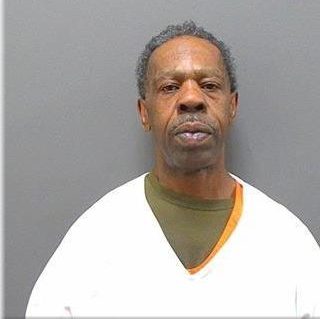Is lawyer obligated to pay client’s bill?
By: dmc-admin//November 30, 2005//
|
“A doctor who provides care to an injured party on credit, secured by an assignment, should not have to sue anyone and end up taking the [case] all the way to the Supreme Court.” Kenneth J. Yorgan |
What is a lawyer’s obligation when a client agrees to pay a chiropractic bill from settlement proceeds, but fails to do so? Does the lawyer have a duty to pay the chiropractor when the lawyer never signed a lien agreement, but his client did?
Those were several questions which arose during oral arguments earlier this month at the Wisconsin Supreme Court. In Kenneth J. Yorgan v. Thomas W. Durkin, justices took up the question of whether lawyers have a legal or ethical obligation to ensure follow-through by a client who has agreed to pay a health care provider’s bills out of a settlement.
Speaking on his own behalf, Dr. Kenneth J. Yorgan, a chiropractor, said he believed the attorney had an obligation to pay any outstanding liens on the settlement before disbursing the money to his client.
“Durkin is her fiduciary agent. It is his responsibility as such to properly disburse any money he receives on her behalf,” Yorgan told the court during the Nov. 15 oral arguments.
The Wisconsin Chiropractic Association filed an amicus curiae brief and attorney Andrew W. Erlandson, of Hurley, Burish & Stanton SC, spoke on the group’s behalf during oral arguments. Erlandson agreed that Durkin had a duty to ensure payment to Yorgan.
“The duty that the attorney owes is to the client. The client in this case had made an unequivocal and an unrevoked assignment that was clear. The attorney’s duty is to follow the instructions of the client,” Erlandson told the court.
“In managing a trust account, the instructions of the client are paramount. Here, the instructions were to pay Dr. Yorgan. It was pursuant to an assignment.”
Representing Durkin, John A. Becker, of Becker, French & De Matthew in Racine, told the justices that a duty had to be accepted and could not be thrust upon an attorney, who had not signed the agreement.
“[The attorney] must accept the duty to acquire that obligation. That did not happen here,” Becker said.
|
“[The attorney] must accept the duty to acquire that obligation. That did not happen here.” John A. Becker |
Unpaid Medical Expenses
The issue arises from a small claims case brought by Yorgan against Durkin, also of the Racine firm Becker, French & De Matthew. Durkin had represented Sol Hernandez, one of the chiropractor’s patients, in an automobile accident case.
Hernandez sought chiropractic care from Yorgan; however, since she could not afford to pay him up front, she signed an “Authorization and Doctor’s Lien,” giving him a share in any settlement she might receive.
Durkin settled Hernandez’s claim and paid the proceeds to her without first paying Yorgan’s $2,104 bill. Yorgan tried unsuccessfully to collect the money from Hernandez, who cannot be located. Eventually, he sued Durkin.
The chiropractor won in the trial court after the judge concluded that Durkin had had actual notice of Yorgan’s lien on the settlement because it was part of the medical record that Yorgan supplied to Durkin.
Durkin appealed and the court of appeals reversed, finding that Durkin had not signed the “Authorization and Doctor’s Lien” that Yorgan had supplied and therefore he had no obligation to pay the chiropractor’s fees from the settlement proceeds. Hernandez had signed the authorization.
Judge Daniel Anderson, writing for the court, stated, “Before an attorney is obligated to honor a client’s assignment of settlement proceeds from a personal injury claim, the attorney must acknowledge the existence of the assignment and must accept the obligations set forth in the assignment.”
Supreme Question
Yorgan petitioned the Supreme Court and it took the case. He maintained that the trial court judgment ought to be reinstated because the attorney had both a legal and ethical obligation to pay him regardless of whether the lawyer signed the document.
Durkin challenged that, arguing that he never agreed to undertake the obligation to ensure that Hernandez paid Yorgan’s bill, and that the court of appeals correctly declined to hold him responsible for that bill.
During the Nov. 15 oral arguments, Yorgan told the Supreme Court that in 23 years of practicing, he has tried to be open to extending credit to personal injury victims who needed services, but lacked the financial resources to pay for them up front. However, he recounted six in-stances when there were problems getting paid for those services.
“Sad to say, in each instance the attorney appeared to be the basis for the problem,” Yorgan said.
He indicated that typically attorneys acting as fiduciaries take their portion, pay any interested parties with legitimate claims against the assignment, and then pay their clients. The problems arise when that does not happen.
“A doctor who provides care to an injured party on credit, secured by an assignment, should not have to sue anyone and end up taking the [case] all t
he way to the Supreme Court,” Yorgan told the justices. “It is unfair, unnecessary and could easily be settled here.”
“This is not a situation where the patient/client and the medical provider’s intent is unclear,” Erlandson noted during his portion of the oral arguments. “This is not a case where the intent to create an assignment and a lien on the proceeds of any settlement or verdict is unclear. There isn’t a credible dispute that [Hernandez’s] attorney did not receive notice of an assignment. And there is no evidence that [Hernandez] ever expressed dissatisfaction with Dr. Yorgan’s services or challenged the enforceability or legality of the assignment-lien document in any way.”
Fiduciary Duty?
The justices asked a number of questions related to the nature of the agreement. Justice Patience Drake Roggensack asked whether the agreement was an assignment or lien, noting that the obligation of a lien could attach to the property and pass to another party, whereas that would not be the case with an assignment.
The justices also sought an explanation of the lawyer’s duty to outside parties who have an interest in a settlement or judgment.
“In handling the trust account, what fiduciary duty, if any, did he owe with respect to that trust account and to whom?” Justice Louis B. Butler Jr. asked.
Erlandson responded, stating that the attorney owed a duty to both parties. Once the attorney received the agreement, he had to act on the client’s behalf to see that the obligation was met.
“Funds are held in trust because they are not the attorney’s property. They are the client’s property. The attorney’s duty to handle those and disperse those funds is really a ministerial duty,” he told the court.
| |
||
|
Related Links |
||
| |
||
Becker also noted that the funds are the client’s property. However, rather than establishing an obligation for the attorney handling the trust, he viewed that fact as limiting the response an attorney can undertake.
“My understanding is that money belongs to the client. We can encourage them to pay that, but I cannot take that money and pay your bill,” Becker said. He noted that there was no statutory lien, no common law lien, and no contract between Durkin and Yorgan.
Chief Justice Shirley S. Abrahamson expressed some concerns about how the process played out in this case.
“It just seems unfair,” Abrahamson said. “Despite the fact that the client has a contract with Dr. Yorgan, which on its face seems valid, the lawyer releases the money. It doesn’t seem right.”
She acknowledged that there was no contract between lawyer and doctor. But she indicated there was a problem with the process.
The court is expected to release a decision by next summer.
Tony Anderson can be reached by email.
Legal News
- Gov. Evers appoints David Casey to Serve as DOR Secretary
- FBI launches criminal investigation into Key Bridge collapse
- Man charged in slaying after woman’s leg found at Milwaukee-area park
- Minnesota man guilty in fatal stabbing of teen on Wisconsin river, jury finds
- Wisconsin teen sentenced in bonfire explosion that burned at least 17
- Wisconsin man who broke into home, ate victim’s chicken, slept in victim’s bed, receives prison and jail sentences
- Judge refuses to dismiss Hunter Biden’s gun case
- House passes reauthorization of key US surveillance program after days of upheaval over changes
- Milwaukee Police officer traveling to Georgia training retires before facing discipline
- Evers to ask legislature to approve largest increase in state support for UW System in two decades
- 7th Circuit Court of Appeals proposes new rules
- Federal agencies allege toxic work environment for women in new report
WLJ People
- Power 30 Personal Injury Attorneys – Russell Nicolet
- Power 30 Personal Injury Attorneys – Benjamin Nicolet
- Power 30 Personal Injury Attorneys – Dustin T. Woehl
- Power 30 Personal Injury Attorneys – Katherine Metzger
- Power 30 Personal Injury Attorneys – Joseph Ryan
- Power 30 Personal Injury Attorneys – James M. Ryan
- Power 30 Personal Injury Attorneys – Dana Wachs
- Power 30 Personal Injury Attorneys – Mark L. Thomsen
- Power 30 Personal Injury Attorneys – Matthew Lein
- Power 30 Personal Injury Attorneys – Jeffrey A. Pitman
- Power 30 Personal Injury Attorneys – William Pemberton
- Power 30 Personal Injury Attorneys – Howard S. Sicula











